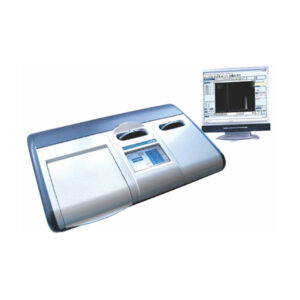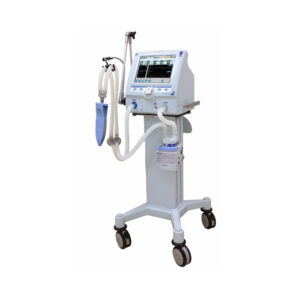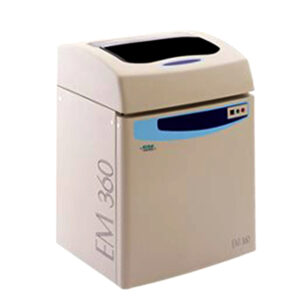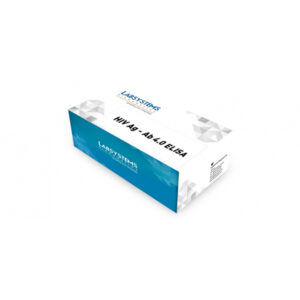Nanolab 700
MPIN: MP40933
Sign in to view priceEffciency – The Nanolab 700 incorporates a 95 position patient sample tray reducing the number of required daily runs. It also has programmable auto dilution for out of range tests. The reagents are very stable requiring few calibrations thus saving time and money. The 72 reagent positions (75 w/ISE) and onboard refrigeration allow for many tests to be kept on the analyzer at the same time.
Ask for Quote
Fully Automated Clinical Chemistry Analyser
Features
- Effciency – The Nanolab 700 incorporates a 95 position patient sample tray reducing the number of required daily runs. It also has programmable auto dilution for out of range tests. The reagents are very stable requiring few calibrations thus saving time and money. The 72 reagent positions (75 w/ISE) and onboard refrigeration allow for many tests to be kept on the analyzer at the same time.
- Cost Savings – The Nanolab 700 does not need an expensive water treatment that requires expensive upfront cost and continual purchase of lters. More savings will be realized by utilizing low cost reagent, calibrator and controls reducing the overall cost per reportable result. Furthermore, the extended service pricing is comparatively low versus other models of this type.
- Easy to Operate – The Nanolab 700 utilizes Windows based software for its operation and is very intuitive with barcoding for sample and reagent identication. It also accepts many sizes of primary tubes. Periodic maintenance is minimal and is easy to perform.
- Space Utilization – The 700, although a oor model, takes surprisingly little space in the laboratory.
Specification
THROUGHPUT
Up to 600 photometric tests/hour, max. 720 tests/hour with optional ISE unit
SAMPLES AND REAGENT
Samples
Sample volume : 2 to 100 μI/tests (in increments of 0.2 μI)
Sample tray : 95 (5 racks x 19 positions) ID barcode equipped positions for routine, stat and control samples and standard solutions.
Primary tube (13 mm diameter, length up to 100 mm)
Pediatric vial
Blood collection tubes
Reagents
Maximum number of simultaneous tests : 36 double to 72 single reagent tests + 3 with optional ISE unit
1 to 3 reagents, 2 to 500 μl/tests each (in increments of 1 μl) final total solution volume 180 to 500 μl/test
Reagent bottle capacities : 72 cooled positions
Barcode Reader for reagents
REACTION
Water consumption : 3 l/hour
Warm air incubator : room, 30°C an 37°C
Reaction cuvette : reusable plastic 6 mm light path cuvettes
Reaction time : 0 to 10 min.
Reaction temperature : 37°C +/- 0.1°C
Mixing : After dispensing each reagent
OPTICAL SYSTEM
End point with reagent blank
Factor or standard calibration modes
Priority selection by sample (profile) or by reagent (batch)
Calibration curve with up to 10 standards
Automatic curve fit
Fast and two-point kinetics (zero and first order)
Routine, batch, STAT, profiles
Enzymes, Drugs, Turbidimetric tests
Automatic sample dilution on abnormal levels, excessive substrate consumption and/or lack of linearity
Import/export data, methods and historic file, quailty control and calibrator
Automatic backup procedure
Test selection, automatic calibration, calibration curve, multipoint calibration, polygonal
Serum indices: sample blank compensation, calculated tests
Quality control, auto re-run, prozone check, record of calibration, data storage (historic results)
Automatic pre-dilution and post dilution (ratio 1:5 to 1:100)
Stat: Highest priority in operation
Continuous sample loading
Decontaminating post-wash
QUALITY CONTROL
Full quality control: Levy-Jennings plots, Westgaard multi-rules
DATA MANAGEMENT
Bidirectional LIS interface, RS-232C, ASTM E-1381
POWER REQUIREMENTS
110/230 VAC, 50/60 Hz, 850 VA
DIMENSIONS
Size (Width x Depth x Height) 97 cm x 67 cm x 100 cm
38.8 x 26.8 x 40 in • Weight : 175 kg; 385 lbs
MEDICA ISE MODULE
Na+, K+ and CI measurements on serum or urine samples
PC REQUIREMENTS
Windows™ 8 computer, 4 Gbytes RAM, 500 Gbytes HDD, DVD-ROM drive, min. 1024×768 resolution SVGA, 15” or bigger monitor, keyboard, mouse, 2 RS-232 ports or 2 USB/RS-232 converters for link with the analyzer and LIS, USB port for printer
PRINTERS
Most printers supported by Windows can be connected. Printout is optimized by customer: analysis results, work list, patient sample list, quality control, calibration curves, and more
Shipping Policy
Orders made at Medpick are initiated and processed for shipment upon receipt of request from the customer. Please note that our Shipping Services (Fee, Transportation, Loss or Damage of any shipment, etc.) are in accordance with the Seller\'s terms of Shipment.
Refund Policy
Please refer to Medpick Return Policy.
Cancellation / Return / Exchange Policy
Please refer to Medpick Return Policy.
 REGISTER
REGISTER
 SIGN IN
SIGN IN








